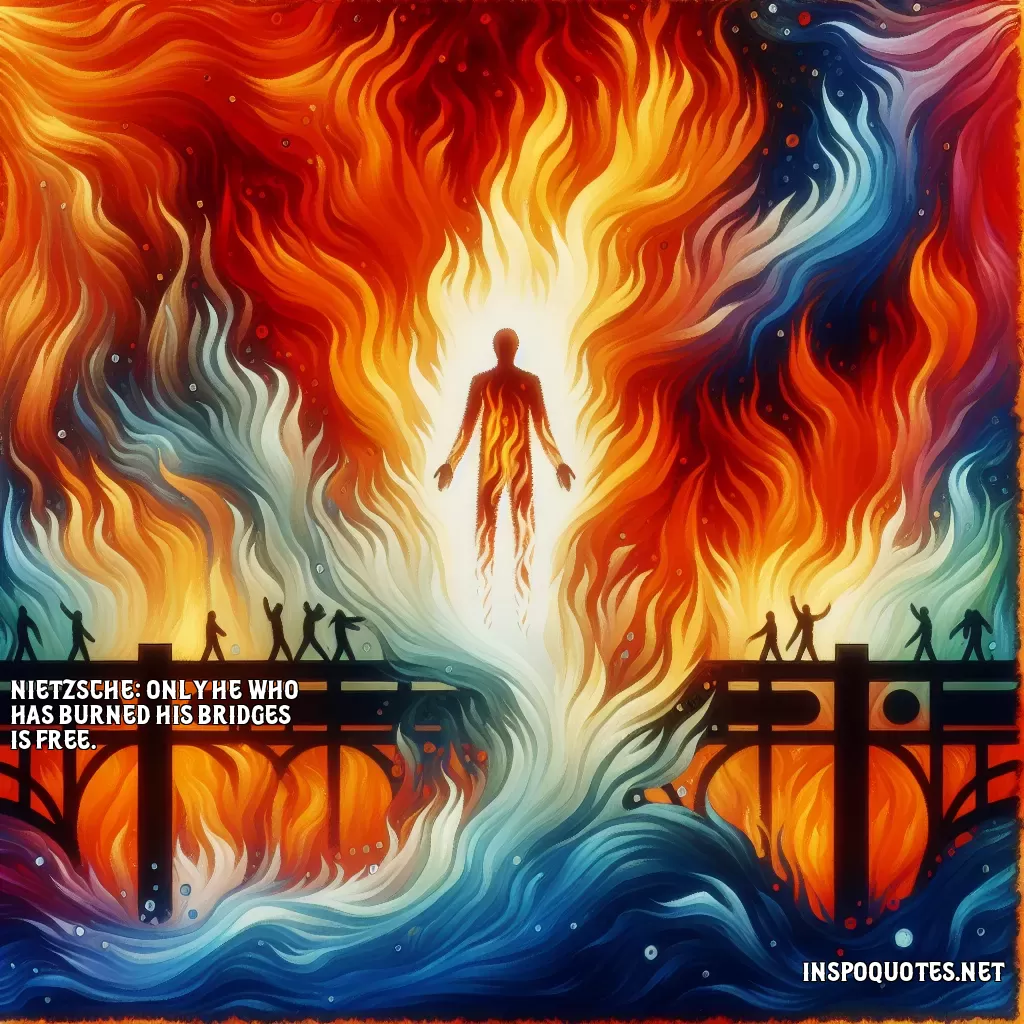
Nietzsche: Only he who has burned his bridges is free.
Author: Friedrich Nietzsche
👁️ 6 views
Friedrich Nietzsche's quote, "Only he who has burned his bridges is free," invites us to contemplate the concept of freedom and the barriers created by past choices and commitments. The phrase "burning one's bridges" is commonly understood as making decisions that are irreversible, leaving no retreat or possibility to return to one's previous state or environment. In this context, Nietzsche suggests that true freedom requires one to sever ties with the past, eliminating any fallback options that might tempt a return to familiar but limiting situations. By burning one's bridges, an individual is forced to advance, explore new paths, and fully commit to the journey ahead without being anchored by previous obligations or comfort zones. This act of severance can be a transformative experience, as it compels individuals to rely entirely on their own courage and resources, fostering a sense of independence and self-determination. Nietzsche implies that with no way back, one's focus sharpens, ambitions are clarified, and the full spectrum of potential is laid bare, unclouded by the shadows of past dependencies. However, it's important to note that this interpretation of freedom is radical and not without risk. By removing safety nets, individuals expose themselves to uncertainty and potential failure. Nietzsche's philosophy often champions this embrace of risk and the unknown as necessary for genuine growth and self-actualization. While some might see burning bridges as reckless, Nietzsche perceives it as a courageous act leading to authentic freedom, as it compels individuals to confront their deepest fears and desires, promoting profound personal development and liberation from societal or self-imposed constraints.
Quote By: Friedrich Nietzsche
Friedrich Nietzsche (1844-1900) was a German philosopher, cultural critic, and poet, renowned for his profound exploration of morality, religion, and the human condition. His provocative ideas, including the concepts of the "Übermensch" and the "will to power," challenged conventional beliefs and laid the groundwork for existentialism and postmodernism. Nietzsche's influential works, such as "Thus Spoke Zarathustra" and "Beyond Good and Evil," continue to inspire and provoke thought in various fields, including philosophy, literature, and psychology.
Bio added on: 2025-02-13 14:46:06